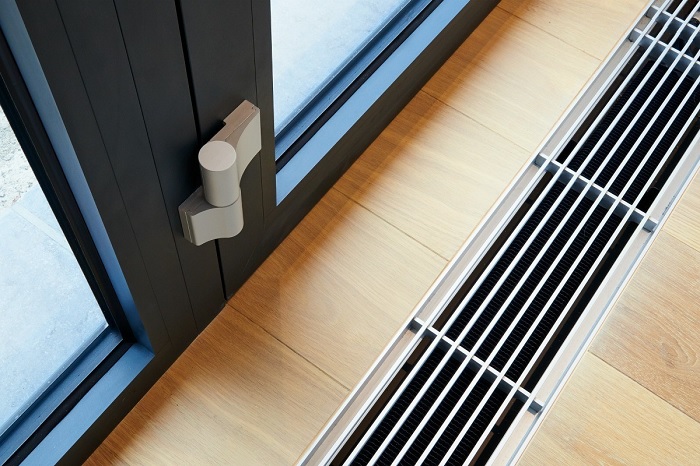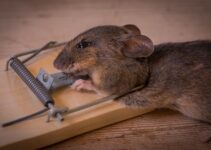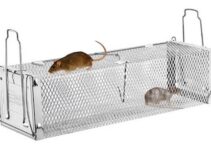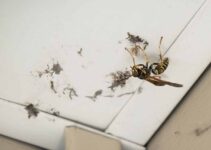Ever wondered if mice can find their way into your home through heater vents? The answer is yes, these crafty critters can indeed sneak in through those openings.
But that’s not the only concern – if you discover mouse poop in your heater vents, it’s important to know what steps to take to ensure your home remains a healthy and safe space.
In this article, we’ll break down the process of handling this situation step by step, so you can get rid of this ugly situation without any problems.

Can Mice Get In Through Heater Vents?
Yes, mice are quite adept at finding tiny openings to squeeze through, and heater vents can be appealing entry points for them. These vents often lead to warm and cozy areas within your home, making them attractive hideouts for rodents seeking shelter.
How Do Mice Get In Through Heater Vents?
Mice are natural-born contortionists. They can squeeze through openings as small as a dime, and heater vents are no exception. These vents usually have passages that connect to the outside, providing an ideal pathway for mice to infiltrate your living space. Once they’re in, they might explore and end up leaving behind their mouse droppings.
Mouse Poop in Heater Vents: What to Do
To get rid of mouse poop in your heater vents, you can follow the steps below.
Step 1: Protection First
Before you go into cleanup mode, ensure you’re safeguarding yourself. Put on a protective mask and gloves. This simple step prevents direct contact with mouse droppings and minimizes the risk of exposure to any potential pathogens they might carry. Remember, it’s better to be safe than sorry.
Step 2: Prepare a Disinfectant Solution
Creating a disinfectant is the next vital step. Mix one part bleach with ten parts water. This concoction effectively kills off harmful microorganisms and neutralizes potential health hazards. Transfer the mixture to a spray bottle – you’ll need it for the upcoming steps.
Step 3: Access the Heater Vent
Carefully remove the cover of the heating duct and set it aside. This grants you access to the area where you’ve spotted the mouse droppings. Be cautious not to damage the vent or spread any contaminants during this process.
Step 4: Moisten and Wipe
Now, it’s time to tackle those droppings. Use the disinfectant spray to moisten the affected areas inside the heating duct. This helps to prevent the droppings from becoming airborne and reduces the risk of inhaling any potential pathogens. With a paper towel, gently wipe up the droppings, being thorough but gentle.
Step 5: Vacuum Carefully
For those hard-to-reach spots or any remnants left behind, a vacuum with a HEPA filter can be your ally. Choose a nozzle attachment that allows you to reach deep within the heating duct without causing damage. Make sure to vacuum carefully and avoid any aggressive movements that might stir up contaminants.
Step 6: Double Check and Dispose
Give the area another round of disinfectant spray and wipe it clean. When you’re confident that you’ve removed all the droppings, dispose of the used paper towels in a garbage bag. Seal the bag securely by tying a knot to prevent any potential contamination.
Step 7: Clean the Vacuum
Don’t forget about your vacuum! Remove and dispose of the HEPA filter that you used during the cleaning process. Any remnants of droppings or contaminants should be properly discarded. Afterward, clean your vacuum according to the manufacturer’s instructions, using the bleach and water solution to disinfect it.
Warning
If, for any reason, you’re unable to thoroughly clean up the mouse droppings or feel uncomfortable handling the situation yourself, it’s best to reach out to a professional. Mouse droppings can carry health risks, especially for individuals with weakened immune systems. Ensuring a safe and clean living environment is of the utmost importance.
Related FAQs
How can I tell if there are mice in my heater vents?
Look out for signs such as scratching or scurrying sounds coming from the vents, as well as the presence of droppings around the vent openings. Unusual odors or damaged vent covers can also indicate the presence of mice.
Are mouse droppings dangerous?
Yes, mouse droppings can carry harmful pathogens, including the hantavirus, which can be dangerous to human health. It’s important to handle mouse droppings with caution and follow proper cleaning procedures to avoid potential health risks.
Can I use a regular vacuum to clean up mouse droppings?
It’s not recommended to use a regular vacuum, as it can stir up dust and potentially spread pathogens into the air. If you choose to use a vacuum, make sure it has a HEPA filter to capture tiny particles and prevent their release into the environment.
How often should I clean my heating vents to prevent mice infestations?
Regular maintenance is key to preventing mice infestations. Clean your heating vents at least once a year, especially before the colder months when mice might seek warmth indoors. Also, seal any openings or cracks around the vents to prevent mice from entering.
Can I handle mouse infestations on my own, or should I call a professional?
You can handle minor mouse infestations on your own, following proper safety precautions and cleaning procedures. However, if the infestation is extensive or you’re uncomfortable dealing with it, it’s a good idea to call a professional pest control service to ensure thorough and safe removal.
How can I mouse-proof my home to prevent them from getting in through vents?
Seal any gaps or openings around your home’s exterior, including those around vents, pipes, and utility lines. Use materials like steel wool and caulk to block potential entry points. Regularly inspect and maintain these seals to ensure they remain effective.
Can my pets be affected by mouse droppings in heater vents?
While pets are less likely to be affected by disease from mouse droppings compared to humans, it’s still a good idea to prevent their exposure. Keep your pets away from areas with mouse droppings and ensure that any cleaning or removal is done safely to avoid potential health risks for both you and your pets.
Conclusion
Encountering mouse poop in your heater vents might not be pleasant, but with the right approach, you can effectively address the situation and maintain a healthy home. By following these simple steps – from wearing protective gear to careful cleaning – you’ll ensure that your living space remains free from potential health hazards linked to mouse droppings.





